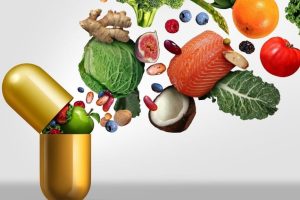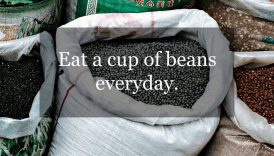The Top 10 Supplements for a Healthier Life

In today’s fast-paced world, maintaining optimal health is often a challenge. With so much emphasis on diets and exercise, it’s easy to overlook the crucial role that various vitamins and minerals play in our daily lives. A well-balanced diet rich in essential nutrients can be the difference between feeling your best or struggling with fatigue and illness. This blog explores some key vitamins and minerals that everyone should consider incorporating into their diets.
- The Top 10 Supplements for a Healthier Life
- Why Nutrients Matter
- Vitamin D
- Benefits
- Sources
- Omega-3 Fatty Acids
- Importance
- Food Sources
- Magnesium
- Health Benefits
- Dietary Sources
- Probiotics
- Effects on Gut Health
- Types of Probiotics
- Vitamin C
- Immune System Support
- Food Sources
- Zinc
- Role in the Body
- Sources
- Iron
- Functions
- Absorption Factors
- Calcium
- Benefits
- Food Sources
- B Vitamins
- Importance
- Food Sources
Why Nutrients Matter
Nutrients are not just a source of energy; they are vital for several physiological functions, including:
- Immune Support: Protecting the body against diseases.
- Bone Health: Ensuring strong skeletal structure.
- Mental Clarity: Supporting cognitive functions.
Just last week, a friend shared how incorporating Omega-3 fatty acids into her diet improved her mood and overall well-being. It’s anecdotes like these that underscore the importance of nutritional awareness in our daily lives. Let’s dive deeper into some of these essential nutrients and discover how they can positively impact health!
Vitamin D
As we explore vital nutrients, let’s shine a light on Vitamin D – often dubbed the “sunshine vitamin.” This remarkable vitamin is crucial for numerous bodily functions, and many people may not realize just how essential it is for overall health.
Benefits
Vitamin D is known for its numerous benefits, including:
- Enhanced Immunity: It plays a critical role in boosting your immune system.
- Bone Health: Essential for calcium absorption, reducing the risk of osteoporosis.
- Mood Regulation: Studies have shown a link between Vitamin D levels and mood enhancement.
Personally, a significant change I noticed was during a winter season when I upped my Vitamin D intake. It not only improved my energy levels but also lifted my mood during those dreary days.
Sources
Getting enough Vitamin D can be easy and enjoyable! Here are some great sources:
- Sunlight: Just 15-20 minutes of sun exposure a few times a week can do wonders.
- Fatty Fish: Salmon and mackerel are excellent sources.
- Fortified Foods: Many dairy products and cereals come fortified with Vitamin D.
Incorporating these sources into your daily routine can significantly boost your Vitamin D levels and, in turn, your overall well-being.
Omega-3 Fatty Acids
Continuing our journey through essential nutrients, let’s delve into Omega-3 fatty acids. Often hailed for their impressive health benefits, these fatty acids are crucial for maintaining optimal health. They are not just a fad; they are backed by extensive research showcasing their importance.
Importance
Omega-3 fatty acids are essential for several reasons:
- Heart Health: They help lower blood pressure and reduce cholesterol levels, significantly lowering the risk of heart disease.
- Brain Function: Omega-3s are associated with improved cognitive function and may even protect against Alzheimer’s disease.
- Anti-Inflammatory Properties: They can aid in reducing inflammation and associated chronic pain.
I remember when I first introduced Omega-3 supplements into my daily routine; I noticed a significant decrease in joint discomfort after just a few weeks!
Food Sources
Incorporating Omega-3s into your diet doesn’t have to be difficult. Here are some excellent food sources:
- Fatty Fish: Salmon, sardines, and trout are rich in these beneficial fats.
- Chia Seeds: A fantastic plant-based source, perfect for adding to smoothies or yogurts.
- Walnuts: Simple to sprinkle on salads or enjoy as a snack.
By including these foods in your meals, you can easily boost your Omega-3 intake and enjoy all the associated health benefits.
Magnesium
As we continue to explore essential nutrients, let’s focus on magnesium, a mineral that often flies under the radar but is crucial for our health. Many people don’t realize just how significant magnesium is for various bodily functions.
Health Benefits
Magnesium is involved in more than 300 biochemical reactions in the body, making it vital for numerous health benefits:
- Muscle Function: It aids in muscle relaxation and contraction, which is essential for physical activity.
- Nervous System Support: Magnesium helps regulate neurotransmitters, which keep communication between the brain and body running smoothly.
- Stress Reduction: It can help lower cortisol levels, aiding in stress management and promoting better sleep.
I once struggled with sleep issues, and after incorporating magnesium-rich foods into my diet, I noticed a remarkable improvement in my sleep quality.
Dietary Sources
So, where can you find this powerhouse mineral? Here are some excellent sources of magnesium:
- Leafy Greens: Spinach, kale, and Swiss chard are all great choices.
- Nuts and Seeds: Almonds and pumpkin seeds are particularly high in magnesium.
- Whole Grains: Quinoa and brown rice provide a substantial amount of this mineral.
By including these foods in your meals, you can easily increase your magnesium levels and enjoy its numerous health benefits.
Probiotics
Now that we’ve covered essential minerals, let’s turn our attention to probiotics, the friendly bacteria that are crucial for your health. These microscopic allies can have a remarkable impact on gut health and overall well-being.
Effects on Gut Health
Probiotics play a central role in maintaining a balanced gut microbiome, which can lead to several health benefits:
- Digestive Health: They help break down food and absorb nutrients, which can alleviate digestive problems like bloating and constipation.
- Immune Function: A healthy gut can support a stronger immune system, reducing the risk of infections.
- Mental Well-being: Emerging research suggests a connection between gut health and mood regulation, highlighting how probiotics can help improve mental clarity and reduce anxiety.
I remember experiencing a noticeable difference in my digestion after I added yogurt with live cultures to my breakfast routine!
Types of Probiotics
Not all probiotics are created equal, and there are various types, including:
- Lactobacillus: Often found in yogurt and fermented foods, this strain supports lactose digestion and nutrient absorption.
- Bifidobacterium: This type is primarily found in the intestines and helps combat gastrointestinal issues.
- Saccharomyces boulardii: A beneficial yeast that can help prevent diarrhea and restore gut balance.
By understanding these types and their benefits, you can make informed choices to boost your gut health with probiotics.
Vitamin C
Having discussed probiotics, it’s time to highlight another superstar nutrient: Vitamin C. This potent vitamin is well-known for its impressive support of the immune system, especially in cold and flu season. Let’s dive deeper into its benefits and the best sources to incorporate into your diet.
Immune System Support
Vitamin C plays a critical role in boosting the immune system by:
- Enhancing Immune Cell Function: It aids in the production and function of white blood cells that protect against infections.
- Antioxidant Properties: Vitamin C helps defend against oxidative stress, reducing inflammation and supporting immune responses.
- Shortening Cold Duration: Some studies suggest that Vitamin C may help shorten the duration and severity of colds.
I have made it a habit to include Vitamin C-rich foods in my diet, and I’ve noticed a significant drop in how often I catch colds during the winter months!
Food Sources
Incorporating Vitamin C into your meals can be enjoyable and easy. Here are some fantastic food sources:
- Citrus Fruits: Oranges, grapefruits, and lemons are classic options packed with Vitamin C.
- Berries: Strawberries and blueberries not only taste great but also provide a healthy dose of this vitamin.
- Vegetables: Bell peppers, broccoli, and spinach are excellent choices that can be easily added to salads or stir-fries.
By including these foods in your diet, you can support your immune system and enjoy the myriad benefits that Vitamin C offers.
Zinc
Transitioning from Vitamin C, let’s now focus on zinc, another essential nutrient that often doesn’t get the attention it deserves. Zinc is a mineral that plays a crucial role in numerous bodily functions and contributes significantly to overall health.
Role in the Body
Zinc is involved in over 300 enzymatic reactions, making it vital for various processes, including:
- Immune Function: Zinc helps in the development and activation of T-cells, which are crucial for the immune response.
- Wound Healing: It supports skin health and accelerates the healing process of wounds.
- Protein Synthesis: This mineral is essential for the synthesis of proteins and DNA, making it important for growth and development.
After learning about zinc’s impact on wound healing, I started taking more zinc-rich foods seriously after a minor cut took longer to heal. Since then, I’ve been more mindful of my intake!
Sources
Incorporating zinc into your diet is both straightforward and delicious. Here are some excellent sources:
- Meat: Beef and lamb are particularly rich in zinc.
- Shellfish: Oysters are famously high in zinc, making them a powerful choice for boosting levels.
- Nuts and Seeds: Pumpkin seeds and cashews provide a plant-based source of this mineral.
By adding these foods to your meals, you can ensure that you meet your zinc needs and support your body’s vital functions.
Iron
Continuing our discussion on essential nutrients, let’s focus on iron. This mineral is not only crucial for energy levels but also plays a vital role in many bodily functions. Without adequate iron, our bodies can’t perform at their best.
Functions
Iron is integral to several key processes within the body, such as:
- Oxygen Transport: Iron is a fundamental component of hemoglobin, the protein in red blood cells that carries oxygen throughout the body.
- Energy Production: It plays a significant role in cellular energy production, helping our bodies convert food into usable energy.
- Immune Function: Adequate iron levels can enhance immune responses, helping us ward off infections.
I remember how tired and sluggish I felt when my iron levels dipped after a particularly challenging workout regimen. Once I increased my intake, my energy and overall vitality returned!
Absorption Factors
Understanding how to maximize iron absorption can be essential. Here are some key factors:
- Heme vs. Non-Heme Iron: Heme iron, found in animal products, is more easily absorbed compared to non-heme iron from plant sources.
- Vitamin C Intake: Consuming vitamin C-rich foods (like oranges or bell peppers) alongside iron can significantly enhance absorption.
- Avoiding Calcium: High calcium foods can inhibit iron absorption, so it’s best to consume them separately.
By being mindful of these factors, you can ensure that your body effectively utilizes the iron you consume.
Calcium
Moving on from iron, let’s discuss another essential mineral: calcium. Often associated with strong bones and teeth, calcium is crucial for maintaining overall health and plays a significant role in many bodily functions.
Benefits
Calcium offers several important benefits, including:
- Bone Health: It is vital for the development and maintenance of strong bones and teeth, making it particularly important during childhood and adolescence.
- Muscle Function: Calcium helps muscles contract and function properly, which is essential for physical activity and day-to-day movements.
- Nerve Transmission: This mineral aids in transmitting messages between the brain and nerves, ensuring smooth communication throughout the body.
After a sports injury, I made it a point to increase my calcium intake, which not only supported my recovery but also felt like a proactive step toward stronger bones for the future.
Food Sources
Including calcium-rich foods in your diet is both easy and delicious! Here are some great sources:
- Dairy Products: Milk, yogurt, and cheese are traditional sources of calcium.
- Leafy Greens: Kale, bok choy, and collard greens are excellent non-dairy sources.
- Fortified Foods: Many plant-based milk alternatives and cereals are fortified with calcium, offering another easy way to supplement your intake.
By making these foods a regular part of your meals, you can ensure that you’re meeting your calcium needs and bolstering your health.
B Vitamins
Finally, let’s take a moment to explore the B vitamins, a group that includes eight essential nutrients that play crucial roles in maintaining energy levels and overall health. Each B vitamin contributes uniquely, and ensuring you get enough of them can make a world of difference in how you feel daily.
Importance
The importance of B vitamins cannot be overstated, as they support various bodily functions:
- Energy Production: B vitamins help convert carbohydrates, fats, and proteins into energy, keeping you energized throughout the day.
- Brain Health: They play critical roles in brain function and may help reduce the risk of cognitive decline.
- Mood Regulation: Certain B vitamins, particularly B6, B12, and folate, are linked to improved mood and reduced symptoms of depression.
I noticed a significant lift in my energy levels and mental clarity when I became more conscious about including B vitamins in my diet!
Food Sources
Incorporating B vitamins into your meals can be simple and satisfying. Here are some excellent food sources:
- Whole Grains: Brown rice, oats, and barley are excellent sources of multiple B vitamins.
- Meat and Seafood: Chicken, beef, and fish like salmon are rich in B12 and other B vitamins.
- Leafy Greens and Legumes: Spinach, beans, and lentils provide a variety of these essential nutrients.
By adding these foods to your diet, you can ensure that you’re getting the necessary B vitamins to support your energy and overall health.





